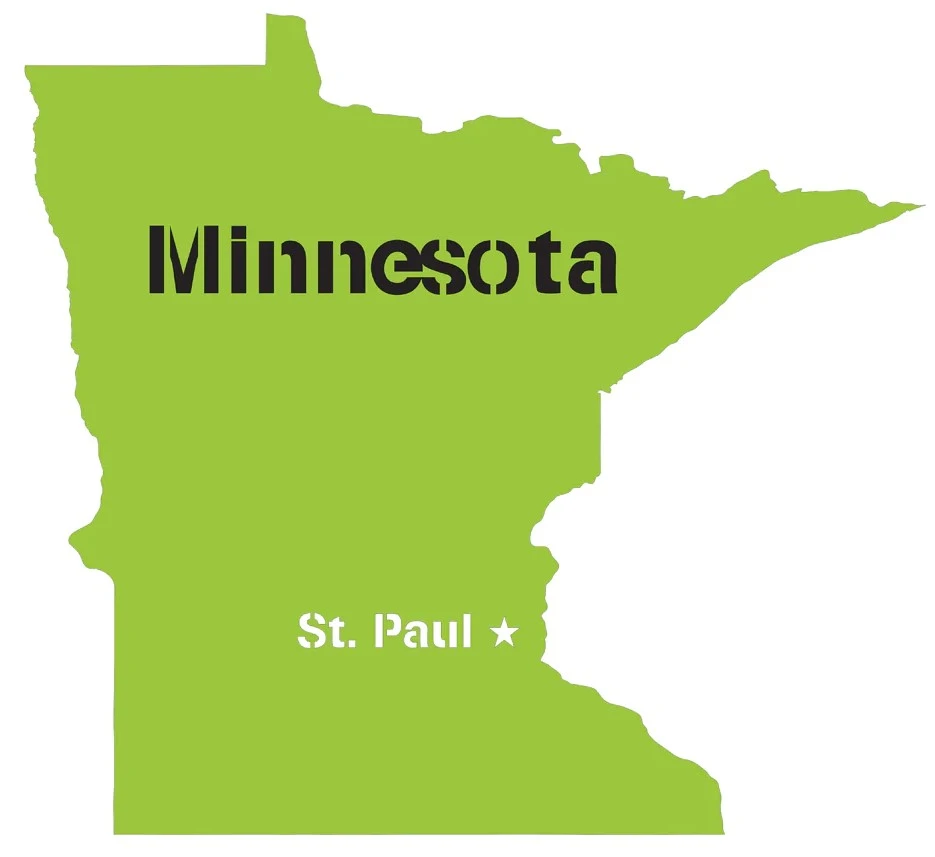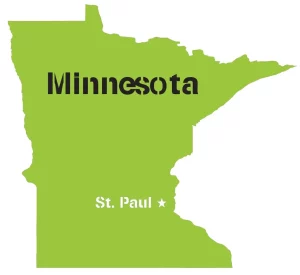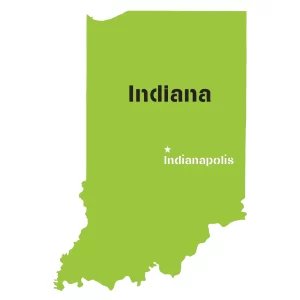
Kratom’s murky legal status has left many residents wondering: Is kratom legal in Minnesota? This controversial botanical substance has elicited debate across the United States regarding its risks, benefits, and appropriate level of regulation. This article will clarify kratom’s current legal status in Minnesota.
Kratom Overview
Kratom is derived from the leaves of Mitragyna speciosa, a Southeast Asian tree related to coffee. It contains several active compounds, most notably mitragynine and 7-hydroxymitragynine. These compounds interact with opioid receptors in the brain.
At low doses (1–5 grams), kratom acts as a stimulant with effects similar to those of caffeine. At higher doses (5–15 grams), it has analgesic and sedative properties similar to opioid pain medications.
Many people use kratom to manage pain, ease opioid withdrawal symptoms, boost energy, alleviate anxiety, and more. It is typically consumed in powder or capsule form but can also be used as a liquid extract or tea.
However, kratom is not federally approved to diagnose, treat, cure, or prevent any medical conditions. More research is needed to fully understand its efficacy and safety according to FDA and DEA guidelines.
Kratom Controversies
In recent years, kratom has sparked significant controversy regarding its potential for abuse, toxicity, and medicinal benefits:
- Abuse Potential: At high doses, kratom may induce euphoria along with sedative effects. This had led to concerns of recreational abuse and addiction. Between 2011 and 2017, U.S. poison control centers received over 1,800 reports related to kratom exposure, with approximately half classified as intentional abuse.
- Toxicity: Between 2011-2017, the Centers for Disease Control (CDC) linked 91 deaths to kratom exposure. However, in many of these cases, toxicology reports indicated that multiple drugs or preexisting conditions were also present. Still, between 2016-2021, kratom was linked to 962 poison center calls reporting life-threatening symptoms like seizures, increased heart rate, and coma, suggesting further study on the safety profile is warranted.
- Medicinal Uses: Advocates claim evidence exists supporting kratom’s effectiveness in curbing opioid cravings during addiction recovery. Initial animal studies suggest it holds promise for pain relief, depression, and chronic stress, though robust clinical trials are lacking.
This mixture of potential risks and benefits has led to fractured policy responses across different states and local jurisdictions.
Kratom’s Legal Status in Minnesota
In Minnesota, kratom’s murky legal status has left consumers and vendors confused. As of February 2023, here are the key facts to know:
- At the state level, kratom possession, sale, and use are legal for anyone over 18 except in Duluth and St. Cloud, where citywide bans are active.
- In 2022, the Minnesota Board of Pharmacy recommended categorizing kratom’s two primary active compounds, mitragynine and 7-hydroxymitragynine, as Schedule I controlled substances. However, this was just a recommendation – no formal kratom ban has been enacted at a statewide level thus far.
- Currently, a bipartisan group of Minnesota legislators has proposed new bills that could shift kratom into the regulatory oversight of the Pharmacy Board. No votes have yet occurred. If passed, vendors and consumers could face tighter control, but kratom would remain legal outside of Duluth and St. Cloud.
- Major kratom trade organizations like the American Kratom Association (AKA) are actively lobbying legislators in Minnesota to reject any bills that would ban or restrictively regulate retail kratom sales by categorizing it alongside dangerous drugs with no medicinal value
- Local advocacy groups like the Botanical Education Alliance have rallied public demonstrations, arguing that further criminalization or regulation could limit access for those who rely on kratom to improve their quality of life.
This debate between regulatory bodies, legislators, public health agencies, and the kratom industry community will likely continue throughout Minnesota in 2023 as policymakers balance perceived risks with potential therapeutic merits.
Duluth and St. Cloud Local Bans
As mentioned above, Duluth and St. Cloud are the only Minnesota jurisdictions that currently prohibit kratom locally:
- Duluth Kratom Ban: In 2020, Duluth passed Ordinance No. 10870, categorizing kratom as a synthetic drug alongside illicit substances like bath salts. The ordinance bans possession, sale, and distribution, with fines up to $1,000 or 90 days in jail as potential penalties. Advocacy groups quickly denounced the ordinance as misguided, but thus far it remains an enforceable law in Duluth.
- St. Cloud Kratom Ban: In 2021, St. Cloud’s city council unanimously voted to ban retail kratom sales, imposing fines up to $1,000 on violators. Residents may still possess kratom for personal use under the ordinance, but they cannot distribute or sell it commercially. The ban received support from the St. Cloud police chief but pushback from business owners and consumers.
These local actions underscore the desire of some regulatory bodies to curb kratom availability amid safety concerns. However, the lack of a statewide Minnesota ban even after the Pharmacy Board’s scheduling recommendation hints at the lack of definitive evidence of harm and addictive potential.
Current Kratom Recommendations for Minnesota Consumers
Given the product’s controversial nature yet still legal access outside Duluth and St. Cloud, here are some responsible use guidelines for adult kratom consumers in Minnesota:
- Talk to your doctor before using kratom if you are taking any medications or have underlying health conditions it could potentially interact with
- Start slow at lower doses if you choose to use kratom to self-assess effects and sensitivity
- Do not take kratom prior to driving or operating heavy machinery due to drowsiness risks
- Consider safer alternatives for pain, anxiety, drug withdrawal, or recreation before trying kratom
- Ensure any kratom products are high-quality, uncontaminated, and from reputable vendors
- Monitor yourself and/or your child carefully for any signs of kratom misuse if you allow it in your home
- Understand that there may be legal risks associated with transporting kratom across state lines or attempting to conceal kratom usage from employers, law enforcement, or physicians.
Kratom remains controversial yet accessible for now outside Duluth and St. Cloud. Responsible consumers should educate themselves on any emerging laws, research, benefits, and risks prior to incorporating kratom into their health regimes.
The Future of Kratom Legality in Minnesota
In 2023, kratom’s legal status in Minnesota will remain in flux. Though prominent regulatory bodies have called for tighter control or outright criminalization, no binding statewide kratom ban has yet come to fruition.
Advocates hope new emerging research could validate kratom’s therapeutic merits, helping sway legislators against prohibition or strict scheduling. However, incidences of injuries and fatalities associated with adulterated kratom products could motivate increased regulatory oversight of manufacturing processes and retail sales – especially if minors are able to easily access potentially unsafe kratom derivatives.
For now, most Minnesotans over 18 may continue to legally purchase quality-controlled kratom locally. But kratom consumers and vendors would be wise to monitor regulatory announcements closely and voice informed opinions to state lawmakers as appropriate.
Though the future is unclear, the coming months promise continued lively debate amongst invested stakeholders, including consumers reliant on kratom for daily wellness.





